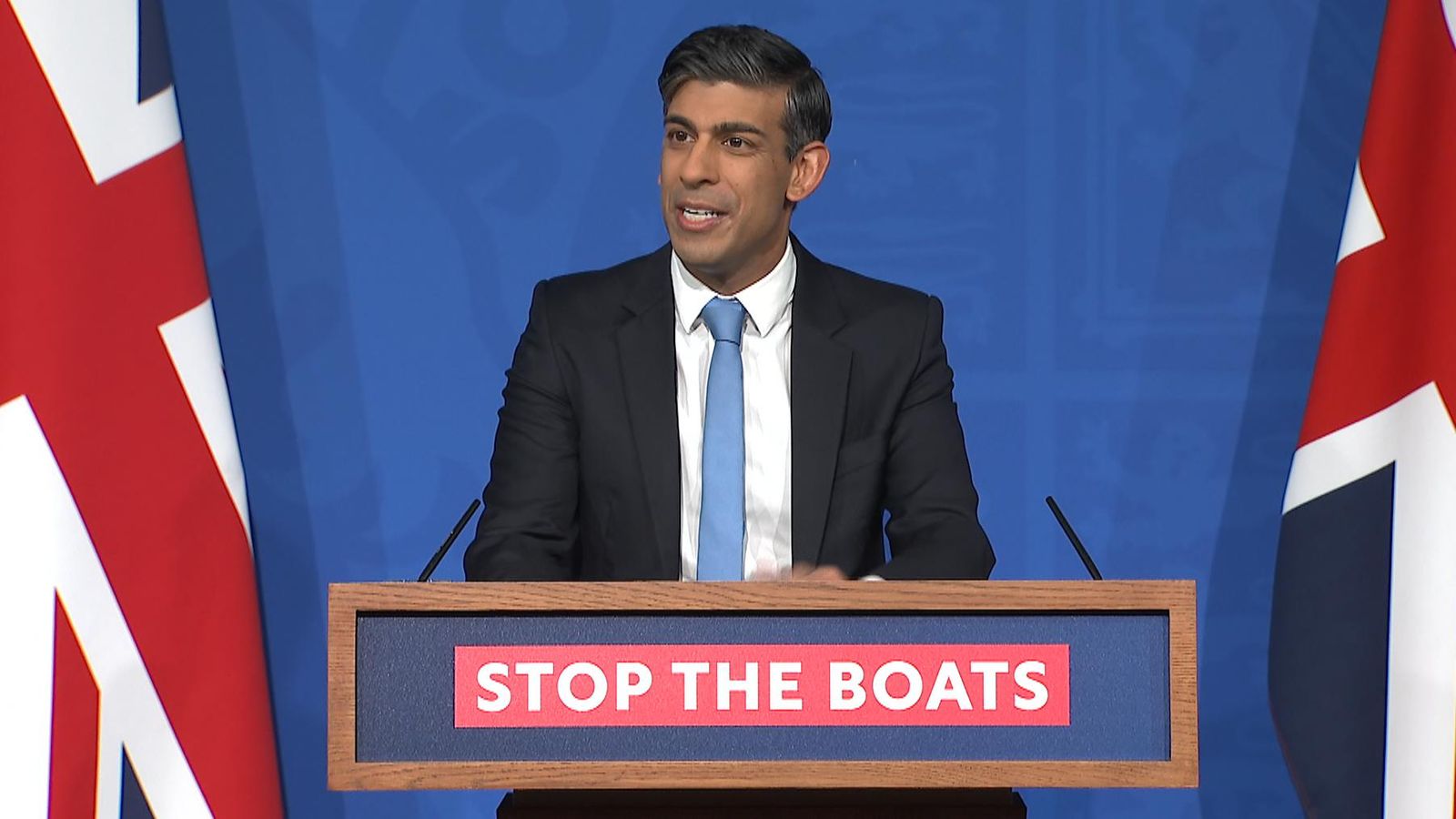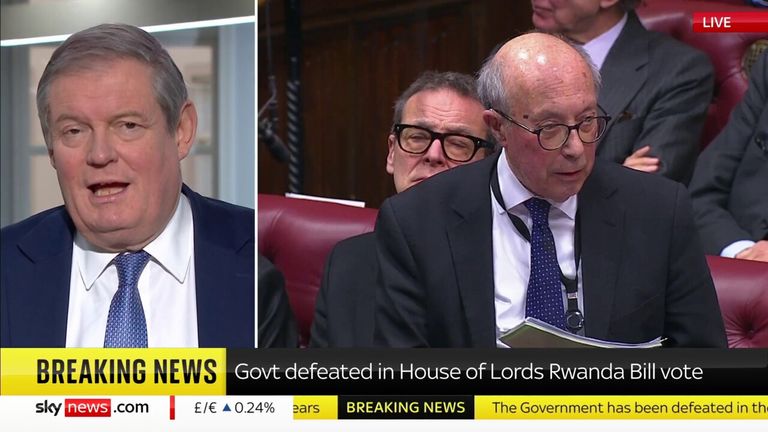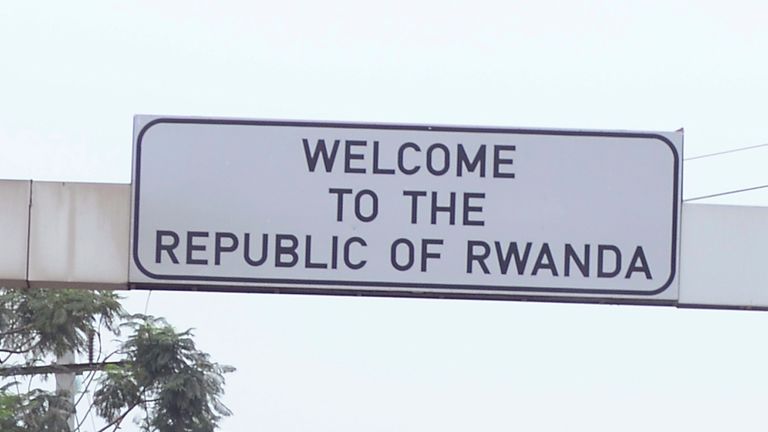Rishi Sunak has suffered a number of sizeable defeats in the House of Lords over his controversial bill to rescue the stalled Rwanda plan.
Peers have voted through five amendments which, if enacted in law, would make it harder for parliament to declare the African nation ‘safe’ and would require the government to comply with domestic and international law.
This would effectively kill the central purpose of the legislation – which aims to prevent further legal challenges against the policy after it was ruled unlawful by the UK’s Supreme Court.
The votes don’t scupper the bill entirely, but set into motion the process of parliamentary “ping pong” between the Lords and the Commons until an agreement is reached.
Politics Live: Corbyn taking legal action against Farage
As well as compelling judges to regard Rwanda as safe, Mr Sunak’s Safety of Rwanda Bill is designed to give ministers the power to disregard key sections of the UK’s Human Rights Act and other international rules that stand in the way of deportations.
Peers from across the political divide have criticised it because they believe it breaks international law.
On Monday, the upper chamber backed a move to ensure the legislation is fully compliant with the law by 274 votes to 172, a majority of 102.
The Lords also backed by 282 to 180, another majority of 102, a demand that parliament cannot declare Rwanda ‘safe’ until the treaty it signed with the country in December is fully implemented.
The treaty aims to address the issues raised by the Supreme Court in November and includes provisions to stop asylum seekers who end up in Rwanda being sent back to their country of origin.
In a third defeat for the government, peers voted by 277 votes to 167, a majority 110, in favour of establishing a monitoring mechanism able to check whether Rwanda is safe.
Two other amendments were passed which called for the presumption that Rwanda is safe to be open to challenge in the courts if “credible evidence” emerges.
Lord Anderson of Ipswich, an independent crossbencher and lawyer, said: “If Rwanda is safe, as the government would have us declare, it has nothing to fear from such scrutiny.”
Several Conservative peers also voted against the government’s position, including former Tory chancellor Ken Clarke.
He warned that if the bill is ultimately passed by parliament, it will likely face another challenge in the Supreme Court.
Tory peer Lord Tugendhat, whose nephew is security minister Tom Tugendhat, accused the government of behaving like the ruling party in George Orwell’s dystopian novel 1984.
The sizes of the defeats, with margins of over 100 votes, are the biggest suffered by Mr Sunak as prime minister.
He could face further trouble on Wednesday when more Lords amendments are voted on.
Read More:
Rwanda bill ‘fundamentally incompatible’ with human rights law, MPs and peers warn
The legislation is going through the report stage in the upper chamber, having passed its third reading in the Commons in December last year.
The changes voted on will now go back to the Commons to be voted on again in two weeks.
It is expected the bill will still be passed by the end of the month. But how soon after this flights can get off the ground is unknown.
The plan is seen as central to Mr Sunak’s pledge to “stop the boats” and ministers have promised the first flights will happen “in the spring”.


